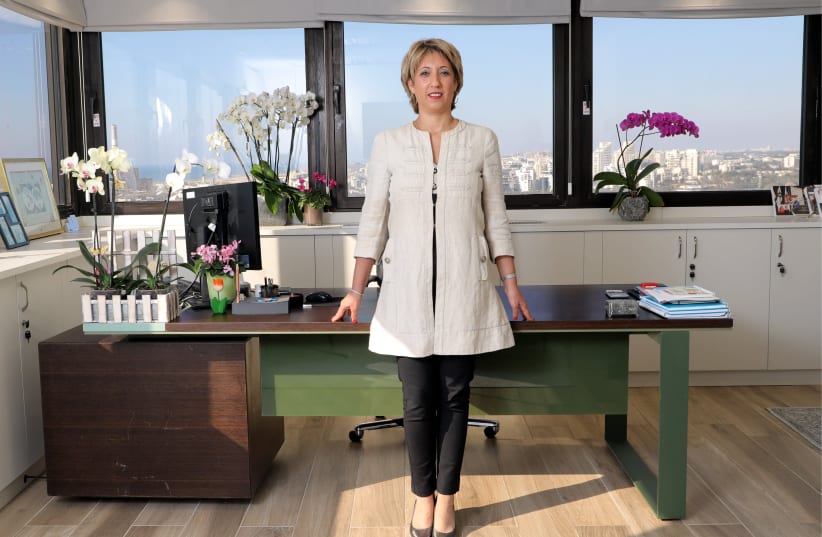“You should always dream and dream big so that you ensure you leave a mark in all that you do,” Sigal Regev Rosenberg, director-general of Meuhedet recently said.
This belief has been the driving force behind her nearly 30-year career in the health industry and what led her to become the first female head of one of Israel’s Kupot Holim (HMO).
Rosenberg sat down with The Jerusalem Post to discuss the state of health services in Israel, the impact of the coronavirus pandemic, and the dawn of unprecedented medical advances in the digital age.
“The field of medicine today is fascinating, and I think that medicine will change exponentially in the next 5 years,” she said.
Rosenberg, who was born in the Negev, in Israel’s Southern periphery, studied mathematics, economics and computer science before starting her career in the health industry. A trailblazer in the field, she recognized the need for a digital transformation of the industry early on in her career.
“I think I was talking about implementing digital services during a time where people looked at me like, ‘what are you talking about?’” she joked. “Even the doctors were against it.”
However, as the newly appointed CEO of Meuhedet, she was able to implement her lifelong vision for the healthcare system, partnering with US firm AM Wells to develop a digital platform for the kupa.
The aim, she said, was not a complete digital transformation but rather a “hybrid” model. “We need to have both digital and in person services, a mix of the two – this was the main vision of Meuhedet before the coronavirus pandemic.”
Her vision paid off, as the onset of the coronavirus triggered an acceleration of digital use, Meuhedet was well prepared for these new and uncertain times.
“Today due to the pandemic, suddenly everyone has changed their tune and are asking for digital services,” she said. “We have patients who are 80 and 90 years old who are from the ultra-Orthodox and Arab sectors – population groups that people said would never be able to use this technology and yet they have adapted.”
Now, Rosenberg said the next challenge is to further develop this technology. “We have to add new layers to this system, analytics, data mining, AI and to enrich it and so I think that to be in the health system in the next five years is so exciting,” she said.
While there are numerous possibilities on the horizon, Rosenberg cautioned that without government support of the healthcare industry progress will remain limited.
“The coronavirus pandemic put healthcare at the center of people’s lives, they understand now that it is a priority; unfortunately, the government still does not see health as a priority,” she said. “The health system can decline rapidly if we as a country don’t invest in it.”
Rosenberg said she was “worried” about the health system the day after the end of the coronavirus pandemic.
“Our leadership is occupied with other things, and while countries are preparing national plans for health for the next 15 years, I don’t think Israel has a long-term plan,” she said. “Israel needs to create a multi-year plan and understand where we want to be after COVID-19. Life is not worth anything without health.”
On the other hand, she asserted that if there will be true leadership in the health care system, Israel can experience “tremendous growth” and be “among the best in the world in the field.”
On a personal note, Rosenberg said she was happy to be heading Meuhedet, the third largest kupat holim, serving some 1.3 million Israelis, and bringing her unique capabilities to the table during these challenging times.
“This is a very difficult time for all the kupot, we are all connected to the Health Ministry and things are constantly changing,” she said. “During corona times, Meuhedet has remained very close to its patients and has been able to quickly adapt –an advantage to a small kupa.”
Rosenberg stressed that being a smaller HMO during these times has allowed for a closer connection to the community – from performing brits for babies born during the lockdown to arranging funerals for victims of the coronavirus.
Looking to the future, she said the kupa wants to grow, but “not too much” that it loses its “exclusive feel.”
“We have an extra neshama (soul) in this respect. We want our patients to feel proud that they are a part of our family,” she said. “Afterall it is a journey they take with us, from birth until old age.”This article was written in cooperation with
